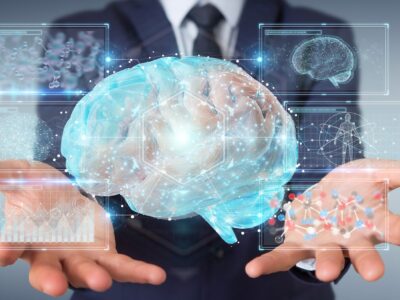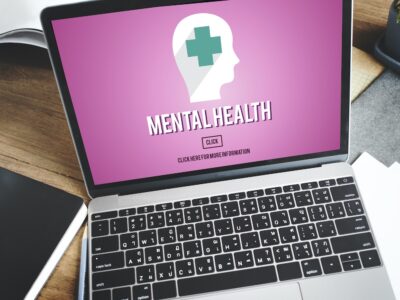Recently, artificial intelligence (AI) has done more for us than most of us could have envisioned. And now, technology is being used in industries such as addiction recovery, revolutionizing the use of technology in the healthcare field. It’s getting to the point where every part of our social and professional lives has AI applied to it. Therefore, doesn’t it make sense to use artificial intelligence in behavioral and mental health care to address the issue of substance abuse?
We were sold years ago on the idea that addicts were people that lived under a bridge. According to mental health experts, it’s an overwhelming, ill-informed, and dangerous substance abuse myth. Addiction is much more complicated than that. The National Institute on Drug Abuse reports that there are over 22.7 million Americans who need treatment for drug and alcohol abuse. Many times, these people are criminalized and not given proper treatment. Behavioral Health Centers is here to help those struggling with addiction – call us today at 772-774-3872 if you or a loved one needs help on the journey to recovery.
Current Treatment Options
Despite this issue, current treatment options fall into two categories:
- In-patient facilities
- Support groups such as Alcoholics Anonymous
Those who take part in in-patient treatment rarely seek to follow up for their addiction and AA doesn’t appeal to everyone due to its religious nature. Tech developers are hoping to change that.

Technology in Our Pockets
New technologies offer another option. We can make use of the computers we carry in our pockets and purses. Of the 165,000 smartphone apps for health care, mental health apps are the largest category, including hundreds of addiction-related choices. Here are a few of the ways AI is making it easier to treat addiction:
Predicting the Risk of Relapse
There is now an app called “Addicaid,” which was developed by a recovering addict named Sam Frons. This app combines AI with clinical research to help predict an individual’s risk for a relapse. Also, it offers treatment suggestions.
An example of this is if the Addicaid app detects that a recovering alcoholic has gone into a bar, it will immediately give them phone numbers they can call or methods they can use at that moment to prevent a relapse.
Relapse is the biggest obstacle to addicts in recovery. Apps get a lot of data from their users including when, how often, and what people said before a relapse. They also knew exactly when relapses occurred because people would restart counting their days of sobriety on the app after a relapse. So, it was fairly obvious. And if the information was run through the right algorithm, you can predict relapse and hopefully prevent it.
Eliminating Negative Influences
A huge obstacle to overcome during addiction treatment is getting rid of the negative influences in your life. Young adults are especially influenced by old friends who encourage them back into addiction.
To focus on this, a group of researchers developed an algorithm meant to help recovering addicts end social relationships that harm their recovery. The app first considers the relationship history between the people. Then based on that assessment, it will recommend whether that relationship should continue or not.
Treatment Tracking
Group meetings like Alcoholics Anonymous (AA) and Narcotics Anonymous (NA) are some of the more traditional forms of addiction treatment. However, for people who are uncomfortable with those types of settings, there are apps like “Triggr” that can help.
AI can track how long a person has been sober and monitor the recovery process. If the addict is slipping into an uncomfortable phase that could lead to a relapse, the treating doctor is alerted so an intervention can be done in time. It can also connect them through text messages or chatting apps with recovery coaches.
The person in recovery communicates with their coach daily. This way, the coach helps the addict get through the daily challenge of recovery. Friendship and support are provided through technology instead of having to go to a group meeting they don’t feel comfortable in.
Finding Moral Support
Support groups are important for recovering addicts because it frequently helps to connect people who are going through the same challenges. That is the thinking behind an app called “Sober Grid.”
Sober Grid helps people who are sober and recovering from a substance use disorder (SUD) find people who live close by and are also going through the same experience. The goal of this app is to connect recovering addicts and their families with each other while helping them find medical professionals and other resources that can be of assistance during their recovery.
Starting Treatment
Perhaps the most difficult part of addiction recovery is simply admitting there is a problem. Most addicts deny that they have an issue. Artificial Intelligence can evaluate the level of addiction and alert the addict that they need professional help.
Through AI, there is an online platform called “LionRock Addiction Recovery” and it is helping addicts with the first steps toward recovery. It is designed for people who believe they may have a problem but are hesitant to get help.
The program can supply them with lifestyle advice, such as following a diet and exercise plan, to suggesting appropriate social environments to help them kick their habit. Additionally, users of this app can be connected to addiction counselors. Using AI, the software can monitor a user’s progress and recommend the next steps in recovery.

Artificial Intelligence Technology and the Opioid Epidemic
Artificial intelligence in behavioral and mental health care is one field of computer science that keeps growing and exceeding what technology engineers thought could be achieved. Still, it continues to make advancements and is at home in several businesses including healthcare. Mental health professionals have been using AI for many years.
In the face of the rising levels of meth addiction, this is even more important. The rise in meth addiction is directly related to a more frequent issue regarding public health. And that is the opioid epidemic. The opioid epidemic has caused 11.4 million people misusing prescription opioids and over 130 people dying every day from overdoses.
Artificial Intelligence and Meth Addiction
Regrettably, opioid use also increases the use of methamphetamine. Opioids can serve as a gateway drug. In fact, over a third of all people using opioids also relate to using methamphetamine. Although the discussion of the opioid epidemic has entered a public comment, the problems of meth addiction.
Like most other addictions, methamphetamine addiction has been studied by various health organizations. Using deductions from the data gathered, along with information about the individual addict, apps can predict the risk of relapse and send support. Being able to program an app so that it can help predict a person’s response to outside stimuli seems advanced beyond our understanding. However, the way big data is using its highest potential, the new uses for AI shouldn’t be that surprising.
Using Artificial Intelligence to Monitor Drug Trafficking
Another use of artificial intelligence in behavioral and mental health care is to help find illegal opioid sellers online. Since social media is everywhere, it has become a convenient platform for drug dealers selling opioids and other illicit drugs. Facebook has been using AI to spot drug content and calculate who the drug dealers are on their network. They can then “detect and reject” content that explicitly promotes the buying or selling of illegal drugs.
The recent introduction of “proactive detection” powered by AI, allows Instagram and Facebook to effectively monitor drug trafficking in real-time. Twitter has also begun initiatives to “scan and ban” drug tweeting content while monitoring hashtags. Tech Together to Fight the Opioid Crisis was formed by Facebook, Twitter, and Google to fight the US opioid crisis. It will be an important aid in understanding how to deal with illicit drug trafficking on their platforms.
NIDA
The National Institute on Drug Abuse, part of the US Department of Health and Human Services, is now investing in an artificial intelligence-based tool. This tool will track how digital drug dealers and illegal internet pharmacies market and sell opioids. Future investigations will use AI and machine learning that can recognize threats and trafficking activity and prevent large narcotics distributions.
Human and Artificial Intelligence in Addiction Treatment
Centers for substance abuse treatment make it a point to have an online presence. It is an important part of reaching out to potential patients in the digital age. And reaching out to their family and friends as well. The ability to connect with nearby rehab facilities online is a product of algorithms and data science. Developments in technology have made it easier to access addiction treatment opportunities in someone’s area.
Options for Remote Recovery
For most addicts, inpatient, or residential treatment is just the beginning. Most of the recovery journey will involve outpatient treatment that starts when inpatient treatment has ended. The longer an individual continues treatment, the better the recovery outcome and the lower the chance of relapse. For some people, the option of continuing in an outpatient program, traveling to and from a treatment facility, is not practical.
Also, there are times when access to inpatient treatment isn’t possible for a person with SUD. There could be a financial issue or other commitments. Although inpatient treatment and support are preferable, it is possible to get cognitive behavioral therapy (CBT) and other therapies for addiction online.
Dual Diagnosis
When we look deeper into the root causes of addiction, we see that there frequently are underlying causes and issues that are unique to the addict. When a person has a mental issue along with an addiction it’s called a dual diagnosis and the two issues must be treated at the same time. This will be difficult to do online.
With the increasing personalization of technology and the ability to analyze large amounts of information, new solutions to helping addicts through recovery are being discovered. However, we need to make sure that we have a responsible, balanced approach that doesn’t end up over-relying on technology for long-term abstinence.
Let Behavioral Health Centers Get You Started
Whether you think you have an addiction or you think someone close to you does, Behavioral Health Centers can help you. Like most people, you will probably need a detox program to eliminate the drugs from your body. This can be a very uncomfortable and sometimes life-threatening process. Going through withdrawal on your own is not recommended.
After detox, we have residential and several outpatient programs. It is critical to have a professional assessment in case of a dual diagnosis. We know you have questions and we have answers. Contact us now. We are available 24 hours a day. We can work out a program designed for you and only you.







